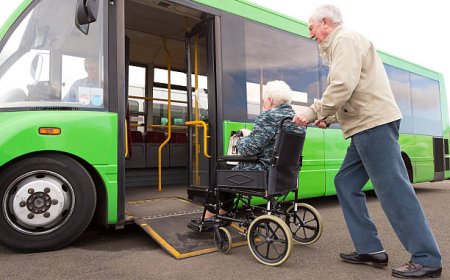What Food Is Best For Young Golden Retrievers’ Health?
Find out what food supports young golden retrievers' health and energy. Learn how to feed your pup right from day one.

Golden Retriever puppies are active, playful, and growing fast, which means they need proper nutrition from day one. When youre welcoming a new puppy into your home, its normal to feel overwhelmed with food choices. You want to give your pup the best start possible, but the market is filled with options. If youre searching for golden retriever puppies for sale NJ, its just as important to know how to feed them right. Feeding your young retriever the right way can help with their bone strength, coat condition, digestion, and energy levels.
The Nutritional Needs of a Golden Retriever Puppy
Young golden retrievers grow quickly in their first year. Their bodies need protein, healthy fats, and balanced minerals to support muscle growth and bone development. They also need specific nutrients that support brain function and a healthy immune system. Puppies that dont get enough balanced food can develop long-term health problems, so getting the basics right from the start really matters.
Wet vs. Dry Food: Which Is Better?
Most golden retriever puppy owners go with dry kibble. Its easy to store, doesnt spoil quickly, and usually has a good balance of protein, fat, and fiber. Wet food, on the other hand, is softer and smells more appealing to some dogs, but it often contains more water and fewer nutrients per serving. If your puppy has trouble chewing or lacks appetite, soft food might help. But in most cases, a high-quality dry kibble does the job well.
Look for High-Quality Ingredients
Reading the food label might seem boring, but its one of the best ways to make sure youre feeding your dog something good. The first ingredient should be real meatchicken, lamb, or beefnot a by-product. Stay away from artificial colors, too many fillers, and cheap grains. Whole grains like brown rice or oats are okay, but avoid corn and soy if possible. These dont offer much nutritional value and may cause allergies in some puppies.
How Much Should You Feed Your Puppy?
It depends on your pups age, weight, and activity level. Usually, young golden retrievers eat three to four small meals a day until theyre around six months old. After that, you can shift to two meals a day. Feeding them on a regular schedule helps with digestion and builds routine. Overfeeding leads to weight gain, which can stress developing joints and lead to future problems, so its best to use the feeding guidelines provided on the dog food package.
Homemade vs. Commercial Puppy Food
Some people prefer making their puppys meals at home. While this gives you total control over ingredients, its hard to balance all the nutrients on your own without help from a vet. Commercial puppy food is formulated to support healthy growth, so its often more reliable. If you ever want to go the homemade route, get advice from a veterinarian to avoid missing key vitamins or minerals.
Ingredients to Avoid Completely
Certain foods are just not safe for golden retrieversor any dog, for that matter. Avoid giving your puppy chocolate, onions, garlic, grapes, and anything with caffeine. These can be toxic. You should also skip foods that are too salty or fatty. Table scraps might seem harmless, but they can upset your puppys stomach or even cause pancreatitis in the long run.
Importance of Omega Fatty Acids
Golden retrievers are known for their thick, shiny coats. That beautiful fur doesnt take care of itselfit relies on good nutrition. Omega-3 and omega-6 fatty acids play a big role in maintaining coat health, reducing itchiness, and supporting brain development. Many high-quality puppy foods include fish oil or flaxseed for this reason.
Hydration Matters Too
While we often focus only on food, water is just as important. Always keep a fresh bowl available, especially if you feed dry kibble. Puppies can dehydrate quickly, especially in warmer weather or after lots of play. Watch for signs of dehydration, such as dry gums, low energy, or a lack of appetite.
Transitioning to Adult Dog Food
Golden retriever puppies grow fast, but theyre not ready for adult food right away. Most vets recommend switching around 12 to 15 months of age, depending on the puppys size and development. Transitioning too soon can lead to nutritional gaps. When you do make the switch, do it gradually over a week to prevent tummy troubles.
Special Cases: Allergies or Sensitive Stomachs
Not all golden retriever puppies handle standard kibble well. Some may develop allergies or food sensitivities early in life. Common signs include scratching, ear infections, or loose stools. In these cases, a vet might recommend a limited-ingredient diet or food with a novel protein like duck or salmon. Keep track of how your puppy reacts to food so you can catch any issues early.
Final Thought
Feeding your young golden retriever doesnt have to be complicated. Stick with trusted brands, watch your pups weight, and be mindful of how they react to their food. Whether youre dealing with a picky eater or a pup that gobbles down everything, the right diet supports everything from energy to coat quality. And remember, if youre bringing home a golden retriever puppy for the first time, talk with your vet to get a food plan that matches your new companions unique needs.
































